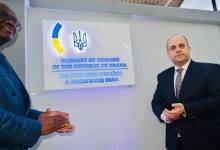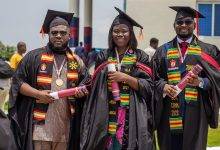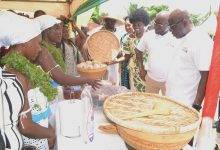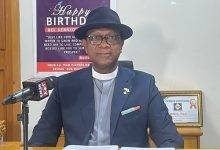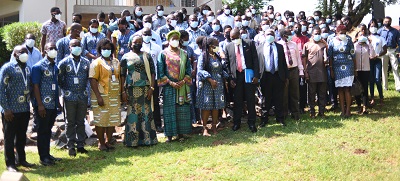
A study conducted by the Noguchi Memorial Institute for Medical Research (NMIMR) on immunity response of some Ghanaians who had received the COVID-19 vaccines has found that almost 90 per cent produced the needed antibodies to fight the virus.
Sampling nearly 100 people in the Greater Accra Region who had received at least a jab of mainly AstraZeneca vaccines, the study showed that neutralising antibodies that prevent the virus from entering one’s cells were produced at least four weeks after vaccination.
Dr Fredrica Dedo Partey, a Research Fellow at the Immunology Department of the Institute, made this known at the launch of a symposium series on COVID-19 by the institute in Accra yesterday.
The symposia titled “COVID-19 in Ghana; The Noguchi Story” seeks to share COVID-19 data at the Institute which has played a lead role in the fight since the outbreak in Ghana, to inform the future outlook of managing the pandemic.
Dr Partey said research findings showed that COVID-19 vaccines were highly effective against the SARS-COV-2 virus in both exposed and unexposed individuals.
“If we really want to overcome this pandemic, our surest way are the vaccines. The COVID-19 vaccines might not prevent you from getting infected but what it does is to protect you from getting severely ill.
So, if you were going to die from the virus if you didn’t have the vaccine, now with it, you probably may suffer a mild disease when infected and this will help take off pressure on the health system to take care of other ailments so vaccines are critical for our fight against COVID-19,” she stated.
Dr Partey appealed to government to invest in research work of the institute to improve health outcomes in the country.
Adding on, the Head of Virology Department, Dr. John Kofi Odoom said the Institute had so far tested 68 per cent of total samples suspected for COVID-19 in the country, confirming 51 per cent of the total positive cases.
He said about 61 per cent of total confirmed samples brought to the institute were males with 39 per cent being females.
Dr Odoom mentioned other contributions of NMIMR to the fight against the pandemic including enhancing laboratory skills both in-country and internationally to test for COVID-19.
He said while the institute will continue to play its part in the fight, it needed grants to support its diagnostic research activities.
Vice Chancellor of the University of Ghana, Professor Nana Aba Appiah Amfo, in a remark reiterated the need to build capacity of local scientists to provide home-grown solutions to public health problems facing the country.
According to her, the NMIMR had proven it was up to the task of conducting research into diseases of public health importance and ought to be supported.
The Vice Chancellor lauded the Institute for rolling out the symposia which she said was in line with her vision to improve visibility of the University in the public eye.
“I hope these series will yield the expected results to advance medical research and make the NMIMR a world class research institute,” she said.
The Director of the Institute, Prof. Dorothy Yeboah-Manu said it was based on the exemplary display of commitment and dedication of staff at the NMIMR over the years to matters of health that “we want to tell our story of the COVID-19 pandemic.”
BY ABIGAIL ANNOH

